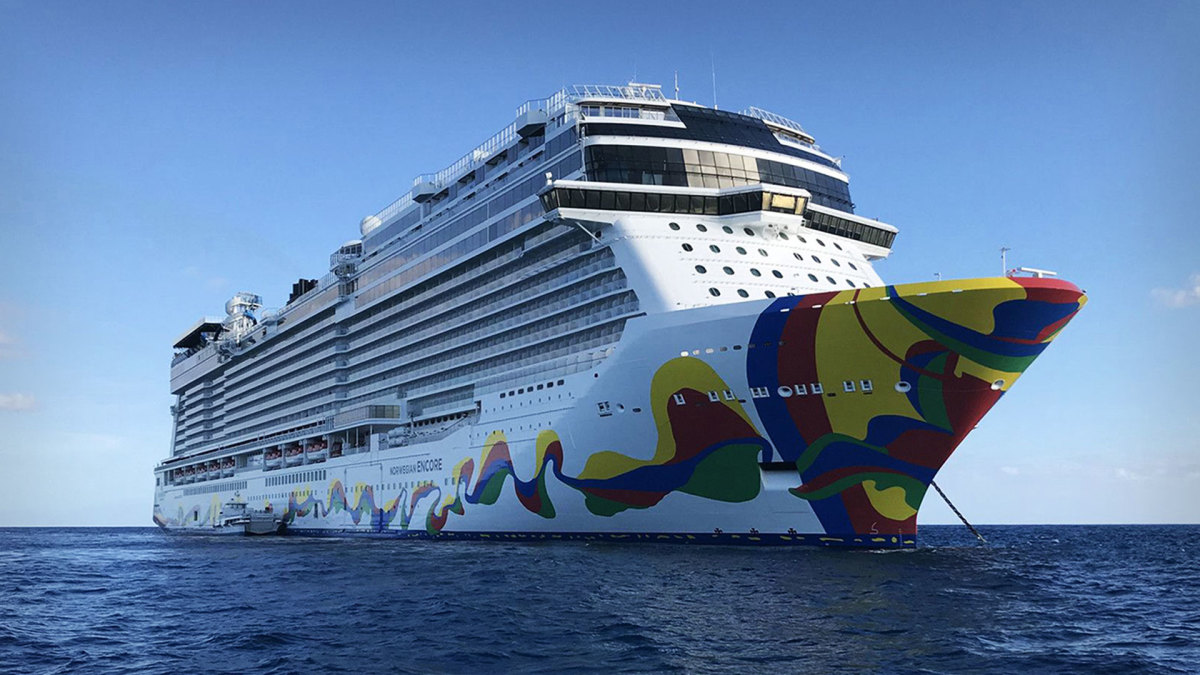
On the website of the Cruise Lines International Association (CLIA), visitors are invited to explore the cruise industry’s environmental stewardship efforts, complete with a #SailingSustainably tagline. The association touts that cruise lines are “sailing to a better future” by pursuing fuel flexibility and reducing harmful carbon dioxide emissions while at berth and at sea.
CLIA promotes that the cruise industry’s sustainability efforts have led to a 16% reduction in CO2 emissions on average per cruise ship since 2018 by ships sailing in Europe. It cites the EU's monitoring, reporting, and verification (MRV) data as its source.
Related: The media has the '10 dirtiest cruise ships' all wrong
While progress is being made toward more sustainable cruise travel, the booming industry’s environmental footprint is huge. A new study conducted in Europe using the same EU MRV data reminds us that the cruise industry still has a long way to go to address its climate issues.
Want the latest cruise news and deals? Sign up for the Come Cruise With Me newsletter.
Ranking the most polluting cruise lines in Europe
According to an emissions study conducted by U.K. consumer champion organization Which?, Europe’s most-polluting cruise ship emitted as much carbon dioxide as a small town of 20,000 residents in 2023.
Which? used the EU's 2023 monitoring, reporting, and verification data to rank cruise lines sailing in Europe based on their average carbon dioxide emissions.
Rather than focusing on total emissions, researchers analyzed emissions per distance traveled. This allowed Which? to pinpoint the cruise lines with the most-polluting ships, rather than just showing the cruise lines that sailed the most voyages.
Related: Royal Caribbean embraces popular European tradition
With this methodology, the study determined Disney Cruise Line was the worst polluter, even though it had only one ship sailing in Europe in 2023. The Disney Dream emitted an average of 1,481 kg of carbon dioxide per nautical mile.
The study found that three of the most polluting cruise ships belonged to Norwegian Cruise Line.
Ranking behind Disney Cruise Line as the second-worst polluter, Norwegian Cruise Line’s ships generated an average of 1,413 kg of carbon dioxide emissions per nautical mile. The largest ship in its fleet, Norwegian Epic, which has a capacity of 4,100 passengers, emitted the most CO2, two tonnes per nautical mile.
Related: Theme park thrills coming to new Disney Cruise Line ship
The following is Which?’s full ranking of the top 10 most-polluting cruise lines in Europe based on their average CO2 emissions per nautical mile.
- Disney Cruise Line – 1,481 kg
- Norwegian Cruise Line –1,413 kg
- Princess Cruises – 1,253 kg
- Royal Caribbean – 1,248 kg
- MSC Cruises – 1,229 kg
- Virgin Voyages – 1,229 kg
- Celebrity Cruises – 1,228 kg
- Cunard – 1,207 kg
- P&O Cruises – 1,108 kg
- Costa Cruises – 1,051 kg
Sign up for the Come Cruise With Me newsletter to save money on your next (or your first) cruise.
How did cruise lines respond to the most polluting cruise lines ranking?
Which? requested comments from the cruise lines included in their ranking. Those that responded questioned the research methodology and said the analysis did not accurately reflect the environmental performance of cruise ships.
Disney released the following comment:
“Disney Cruise Line complies with all air and water quality standards. While sailing in Europe, the Disney Dream used a combination of hydrotreated vegetable oil along with ultra-low-sulfur marine gas oil, which reduces greenhouse gas emissions beyond International Maritime Organisation requirements.”
Norwegian told Which? that the EU’s MRV data can provide valuable insights, but does not account for time spent in port, where emissions are naturally lower and where vessels spend a large amount of time, or the number of passengers being transported on the ship, which it considers should be considered to reflect the ship’s efficiency per person.
Related: Carnival Cruise Line, Royal Caribbean make major smoking change
Carnival Corporation (owner of P&O, Princess, Cunard, Costa and Carnival) added:
“Our fleet produces 10+% less total greenhouse gas (GHG) emissions today than in our peak year (2011) despite increasing capacity by roughly 30%. Greenhouse gas emissions based on distance sailed is not a good measure of the environmental performance of most cruise ships, which often sail shorter distances and spend significant time in port. Instead we recommend considering indicators that drive total emissions reductions, such as emissions per lower berth capacity. In fact, we’re on track to have cut our GHG emissions per lower berth capacity (called carbon intensity) by 40+% by 2026 (vs. 2008 levels).”
Are you taking a cruise or thinking about taking one? Visit our Come Cruise With Me website to have all your questions answered.







